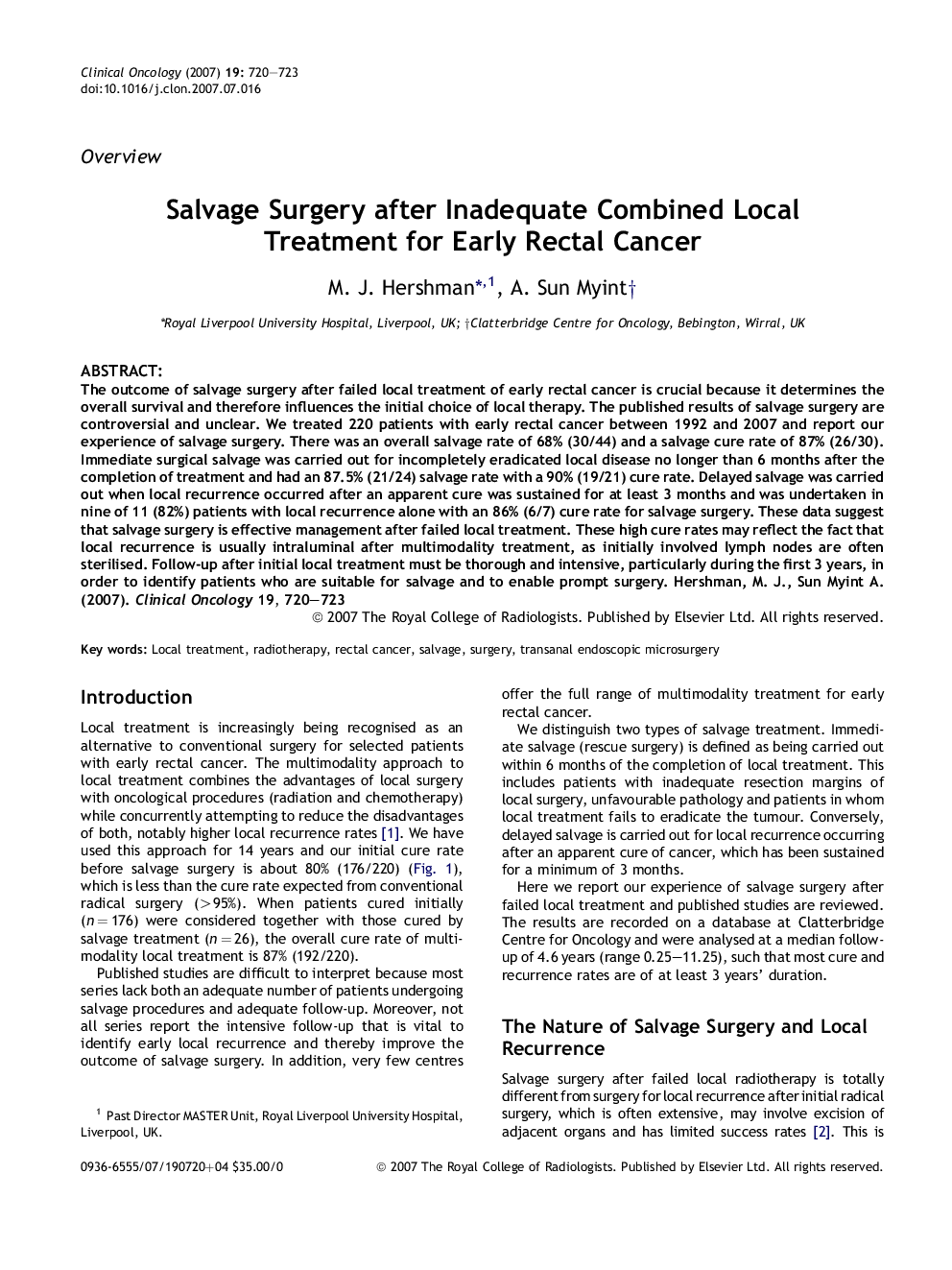| Article ID | Journal | Published Year | Pages | File Type |
|---|---|---|---|---|
| 5699900 | Clinical Oncology | 2007 | 4 Pages |
Abstract
The outcome of salvage surgery after failed local treatment of early rectal cancer is crucial because it determines the overall survival and therefore influences the initial choice of local therapy. The published results of salvage surgery are controversial and unclear. We treated 220 patients with early rectal cancer between 1992 and 2007 and report our experience of salvage surgery. There was an overall salvage rate of 68% (30/44) and a salvage cure rate of 87% (26/30). Immediate surgical salvage was carried out for incompletely eradicated local disease no longer than 6 months after the completion of treatment and had an 87.5% (21/24) salvage rate with a 90% (19/21) cure rate. Delayed salvage was carried out when local recurrence occurred after an apparent cure was sustained for at least 3 months and was undertaken in nine of 11 (82%) patients with local recurrence alone with an 86% (6/7) cure rate for salvage surgery. These data suggest that salvage surgery is effective management after failed local treatment. These high cure rates may reflect the fact that local recurrence is usually intraluminal after multimodality treatment, as initially involved lymph nodes are often sterilised. Follow-up after initial local treatment must be thorough and intensive, particularly during the first 3 years, in order to identify patients who are suitable for salvage and to enable prompt surgery.
Related Topics
Health Sciences
Medicine and Dentistry
Oncology
Authors
M.J. Hershman, A. Sun Myint,
